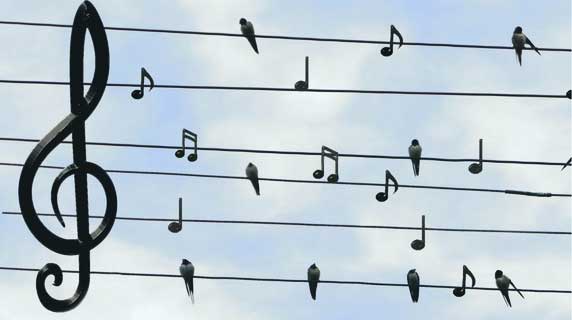
Written in response to Rupert Loydell’s ‘Listening Habits’ and Alistair Fitchett’s ‘Habitual Listening‘, both previously published at International Times
Rituals and habits change with age and circumstances, but the engine for music and creativity keeps running. According to studies I’ve read, the peak age for receptivity to music is between age 10 and 22. After that people tend to shift emphasis to careers, parenting, and so on, and they tend to gravitate towards familiar sounds as there’s less time or appetite for “the new.” This is a generality and I’m well aware there are exceptions.
As for me, a musician by trade, my connection to music started when I needed to FEEL SAFE. When I was very young, observing how music brought people together, if for a time. One of my grandfathers was an ex-vaudevillian and the other an ex-band leader/conductor. The former was an abused, mean man, but music turned him into a human being. I witnessed his transformation and we connected, even as the rest of the family avoided him. I became a singer, pianist, and guitarist, and music made me feel safe in an unsafe environment of home. Even the bullies started to lay off when they heard me play. Wherever my parents took me or whoever I met in school, first thing I’d do is look for an instrument or for their record collection.
During the 1970s, long, often loud, listening sessions were the norm, part of a relationship ritual with musicians and friends. By the 1980s I enmassed a large music collection, collecting every rarity and B-side by favorite artists (it certainly helped that I worked in music stores where I could get things cheap/free + I still scour thrift stores). However, by the 90s, having a mortgage, car payments, and family, it became less feasible to listen on impulse and dropping money on non-essentials. By the 00s, CD reissues and the Net brought out “rarities” in new formats and it was less necessary to be “a collector completist.”
Plus my appetites were being shaped by my career – I was constantly working as a musician and a producer, much of my listening time was spent learning music and/or studying recordings to understand the goals of a studio client. I’d spend hours in that mode but having far less time to listen recreationally to my favorites. I’ve actually become more passive, enjoying whatever is playing (someone else’s choices, grocery store, radio) and studying it with no reason to exert an opinion. It’s liberating to not have to exert myself over likes and dislikes.
In 2011-13 I went through some major life changes and basically lost everything materially. I’d already started to downsize my media (books, records, etc.), but this was down to zero. I haven’t rebuilt that collection but I don’t miss it and will probably never collect again. That said, today I connect with music in more expansive ways. I ask myself: What is the purpose of it? What was the goal of the creator? Does it resonate with my personal values? If it doesn’t, why do other people get it and I don’t? Does that matter? Isn’t it enough that they enjoy it and it’s well made material? …and so on. Very little annoys me and my opinions are curated and brief.
I still discover new artists and get excited to share the discovery with others, sometimes even buying their product just to support (since they’re most Indies or artists I know personally). Even though I don’t sit and listen like I did when I was younger, I enjoy music more than ever because my mind and heart are more clear and receptive than before. I’m grateful for the musical road I’ve had.
.
Johnny J Blair
Entertainer, songwriter, music journalist, and “Singer at Large” Johnny J. Blair is known for his brand of “pop music with a twist,” influenced by British Invasion rock, old school soul/r’n’b, psychedelia, and punk/new wave. With a melodicism breathed by classical, gospel, jazz, and world music, his lyrics are informed by Americana, classic comedy (Laurel & Hardy, Marx Brothers), noir fiction and films (Raymond Chandler, Graham Greene), The Holy Bible, and the writings of T.S. Eliot, The Inklings, and John Steinbeck. Johnny has entertained audiences around the world and his current itinerary includes performing in assisted living homes for people with disabilities and dementia: “Music goes through the brain into places where math and language don’t reach. It heals, and it makes a difference.” He also provides music in homeless shelters, addiction recovery centers, and for ministries that rescue people from human trafficking.
His website can be found here and his Bandcamp here.
.
